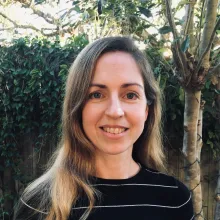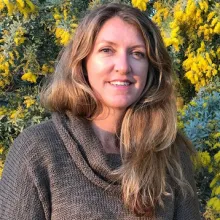Centring women in the planning and delivery of Field Epidemiology Training Programs
This project is seeking to develop understanding of how experiences of Field Epidemiology Training Programs (FETPs) are gendered. The learning will inform recommendation to maximise inclusivity, diversity and gender sensitivity within FETPs.
Project status
Content navigation
About
Modern Field Epidemiology Training Programs are derived from the United States Centers for Disease Prevention and Control (CDC) Epidemic Intelligence Service (EIS) program, which graduated its first cohort in the early 1950s. A cohort of 23, the world’s first field epidemiologists included 22 physicians and a sanitation engineer – all were male. Fast forward more than 70 years, and FETPs support public health workforce development in almost all countries and territories. Not only are field epidemiologists diverse in terms of culture and geography, the full spectrum is now represented in terms of educational background, area of focus (e.g. human health, animal health, laboratories, etc) and gender. In fact, slightly more than half of respondents of a recent global survey of field epidemiologists were women.
Despite the transformation of the profile of field epidemiologists – and field epidemiologists’ own proficiencies in population data – there is no published data or discussion on the experiences of groups who were absent from the original FETP, including women. While the global field epidemiology network – the Training Programs in Epidemiology and Public Health Interventions Network, or TEPHINET – calls for the modernisation of FETPs in its Global Field Epidemiology Roadmap and Implementation Plan, these strategies lack reflection of modern conversations, including equity, diversity and inclusion. Meanwhile, in the broader landscape of global health, significant research indicates that while women are overrepresented in frontline health roles – comprising up to 70% of health workers – they represent just 25% of leadership roles.
Through a participatory action research (PAR) approach, this research is exploring how experiences of FETPs and field epidemiology are gendered. A gender analysis framework for FETPs is being informed by data collected through qualitative methods with field epidemiologists from around the world. The framework will then be utilised in diverse contexts, serving two objectives: to learn how women’s experiences of FETPs differ from those of other genders, and to validate a gender analysis framework for FETPs. Once there is data on how gender intersects with FETPs, key FETP stakeholders, including TEPHINET, will be engaged to determine how institutional frameworks (norms and policies) and structures (leadership and governance arrangements) can support operationalisation of gender sensitive FETPs. Ultimately, the research aims to determine how FETPs can be designed and delivered to maximise inclusivity of all genders.
Please see the video below, “Thesis Proposal Review”, for further information on the research, and in particular, its design and methodologies.
Useful links and further reading
Field Epidemiology in Action – gender analysis
TEPHINET’s International Women’s Day feature
Why it must be a feminist global health agenda
Increasing Women in Leadership in Global Health
Intersectionality and global health leadership: parity is not enough
Women and Global Health Leadership
The Global Field Epidemiology Roadmap
A report of the global field epidemiology roadmap implementation meeting
Get Involved
To even understand what gender inclusivity and sensitivity means in the context of field epidemiology training, we need inclusive research practices. An Advisory Group comprised of people from the FETP community is helping to guide the research process, both contributing to how data is collected and interpreting its meaning to identify next steps.
Anyone from the field epidemiology community – trainees, graduates, trainers, program staff – is welcome to contribute in the research. If you would like to learn more, or get involved, please contact Rachel Mather.


